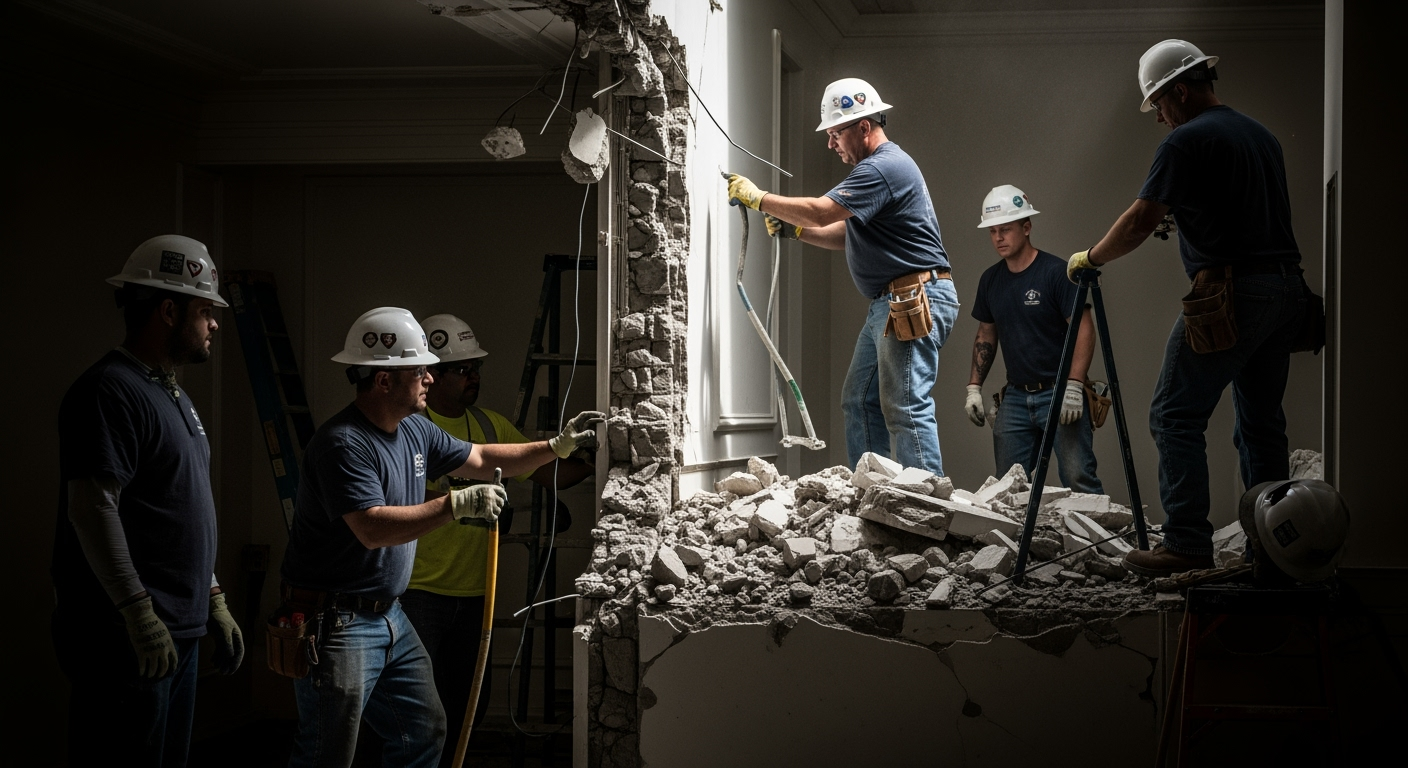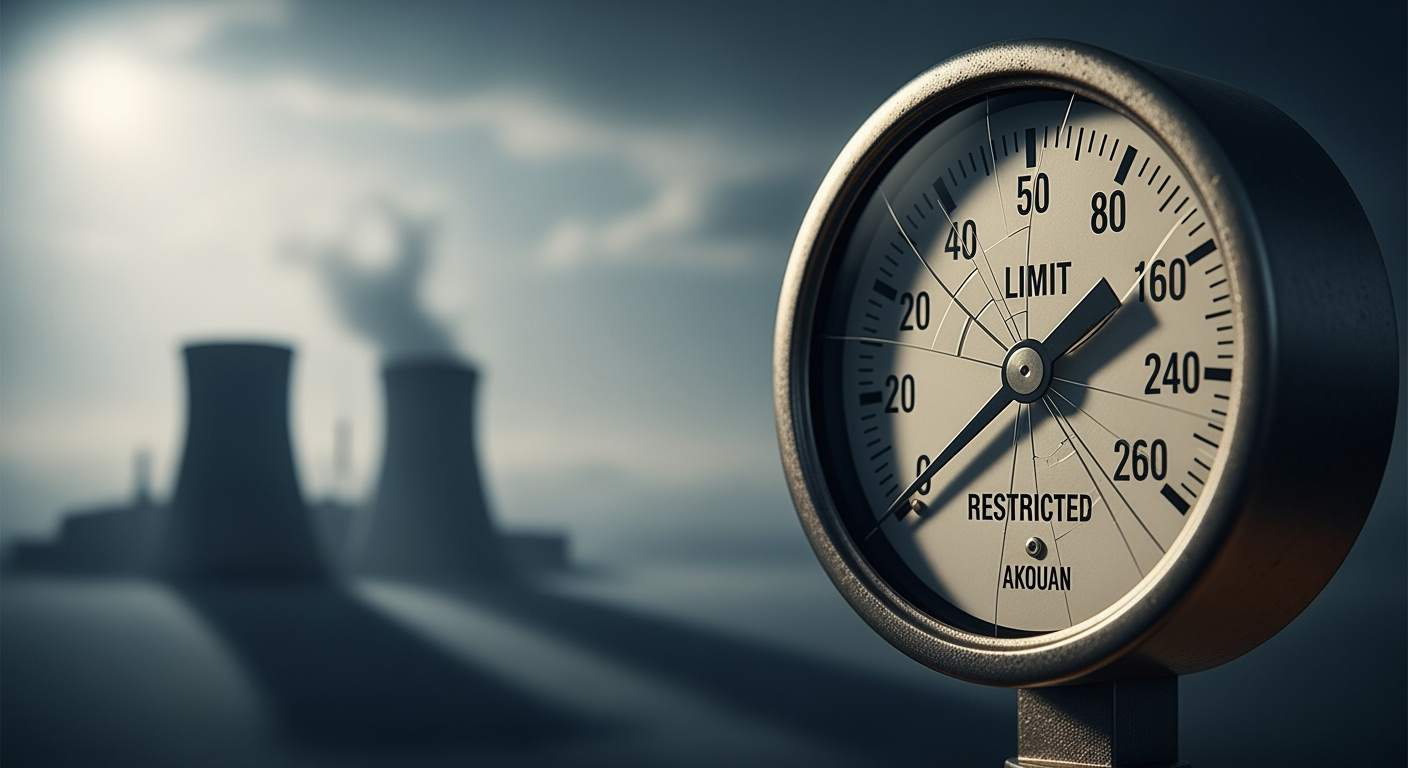Related Articles

Historic White House East Wing Demolition Underway for New Ballroom




TEHRAN – Iran announced Saturday that it is no longer bound by any restrictions on its nuclear program, a significant declaration coinciding with the formal expiration of the 2015 Joint Comprehensive Plan of Action (JCPOA), widely known as the Iran nuclear deal. This move marks a critical juncture in the decade-long international effort to constrain Tehran’s atomic ambitions, raising alarms among global powers about proliferation risks and regional stability.
The Iranian Foreign Ministry issued a statement confirming that as of October 18, 2025, "all of the provisions (of the 2015 deal), including the restrictions on the Iranian nuclear program and the related mechanisms are considered terminated." While Tehran reiterated its commitment to diplomacy, the announcement effectively dismantles the framework designed to prevent Iran from developing nuclear weapons, further complicating an already fraught international landscape. The expiration of Resolution 2231, which endorsed the original nuclear agreement, means that earlier United Nations Security Council restrictions on Iran are formally lifted, and the Iranian nuclear issue is to be removed from the council's agenda.
The Joint Comprehensive Plan of Action, forged in July 2015 between Iran and the P5+1 nations—China, France, Germany, Russia, the United Kingdom, and the United States—alongside the European Union, was heralded as a diplomatic triumph. The agreement sought to ensure the exclusively peaceful nature of Iran's nuclear program by imposing stringent verifiable limitations on its enrichment activities and stockpiles in exchange for significant sanctions relief. These limitations included capping uranium enrichment at 3.67 percent, limiting the enriched uranium stockpile to 300 kilograms, and restricting the number and type of centrifuges in operation.
However, the deal's longevity proved fragile. On May 8, 2018, then-U.S. President Donald Trump unilaterally withdrew the United States from the JCPOA, labeling it a "horrible one-sided deal," and reimposed a sweeping "maximum pressure" campaign of sanctions on Iran. This decision fundamentally altered the agreement's economic incentives for Tehran and prompted Iran to gradually reduce its compliance with its commitments, a process it initiated in May 2019, one year after the U.S. withdrawal. Iran argued that its remedial actions were justified under the deal's provisions, citing the failure of the remaining parties, particularly European nations, to uphold their economic obligations in the face of U.S. sanctions.
Following the U.S. withdrawal, Iran embarked on a phased escalation of its nuclear activities, progressively breaching the limits set by the JCPOA. By January 2020, Iran declared it would no longer observe any operational restrictions on its uranium enrichment capacity, levels, or stockpile size. The International Atomic Energy Agency (IAEA), tasked with monitoring Iran's nuclear program, has since documented a series of violations.
Tehran exceeded the 3.67 percent enrichment limit, first enriching uranium to 4.5 percent, and later to 60 percent, a level significantly higher than required for civilian power generation and close to weapons-grade purity. Its enriched uranium stockpile dramatically surpassed the 300-kilogram threshold, reaching levels 30 times the permitted amount as of October 2024. By November 2024, Iran's stockpile included 182 kilograms of uranium enriched to 60 percent and 840 kilograms enriched to 20 percent. Iran also resumed activity at facilities like Fordow and Natanz, deploying advanced centrifuges that were prohibited under the deal. These advancements have significantly reduced the estimated "breakout time"—the period required to produce enough weapons-grade fissile material for one nuclear weapon—to a matter of weeks, according to some assessments.
The ability of international inspectors to monitor Iran's program has also deteriorated. Iran reduced IAEA monitoring activities in 2021, making verification more challenging, and ceased allowing access to data from some nuclear sites in February 2021. Following U.S. and Israeli airstrikes on Iranian nuclear facilities in June 2025, Iran's President Masoud Pezeshkian ordered a suspension of cooperation with the IAEA in July 2025, further limiting the watchdog's oversight. In June 2025, the IAEA board formally declared Iran in breach of its non-proliferation obligations.
The path to the JCPOA's formal expiration has been marked by a diplomatic stalemate. European signatories, primarily France, Germany, and the United Kingdom (E3), expressed growing frustration over Iran's escalating non-compliance. In late August 2025, the E3 triggered the deal's "snapback" mechanism, citing Iran's "persistent and significant non-performance." This action led to the reimposition of United Nations sanctions, further isolating Tehran and rendering the accord effectively moot. The E3 viewed Iran's actions as a violation of the nuclear agreement.
However, not all global powers were in agreement. Russia, a signatory to the original deal, stated that all restrictions under UNSC Resolution 2231 should be lifted, arguing that the UN Security Council should finalize its review of Iran's nuclear program. Russia also deemed any attempt to reinstate sanctions by circumventing the council as illegal. Meanwhile, efforts to salvage the deal, including recent indirect talks, have largely stalled, leaving little hope for a renewed diplomatic solution.
With the formal termination of the JCPOA's restrictions, the international community faces a landscape of heightened uncertainty. Iran now claims it is solely bound by its obligations and rights under the Treaty on the Non-Proliferation of Nuclear Weapons (NPT), asserting "no limits whatsoever on the scale of its nuclear program." While Iran consistently maintains that its nuclear program is for peaceful purposes, the significant advancements in its enrichment capabilities and the curtailed international oversight raise serious proliferation concerns.
The expiration of the deal represents a failure of diplomacy to sustain a critical non-proliferation agreement in the face of geopolitical tensions. The current situation risks further regional instability and challenges the global non-proliferation regime. The coming months will likely test the resolve of international actors to find a new path forward in managing Iran's nuclear ambitions, with the shadow of potential escalation looming large over the Middle East.